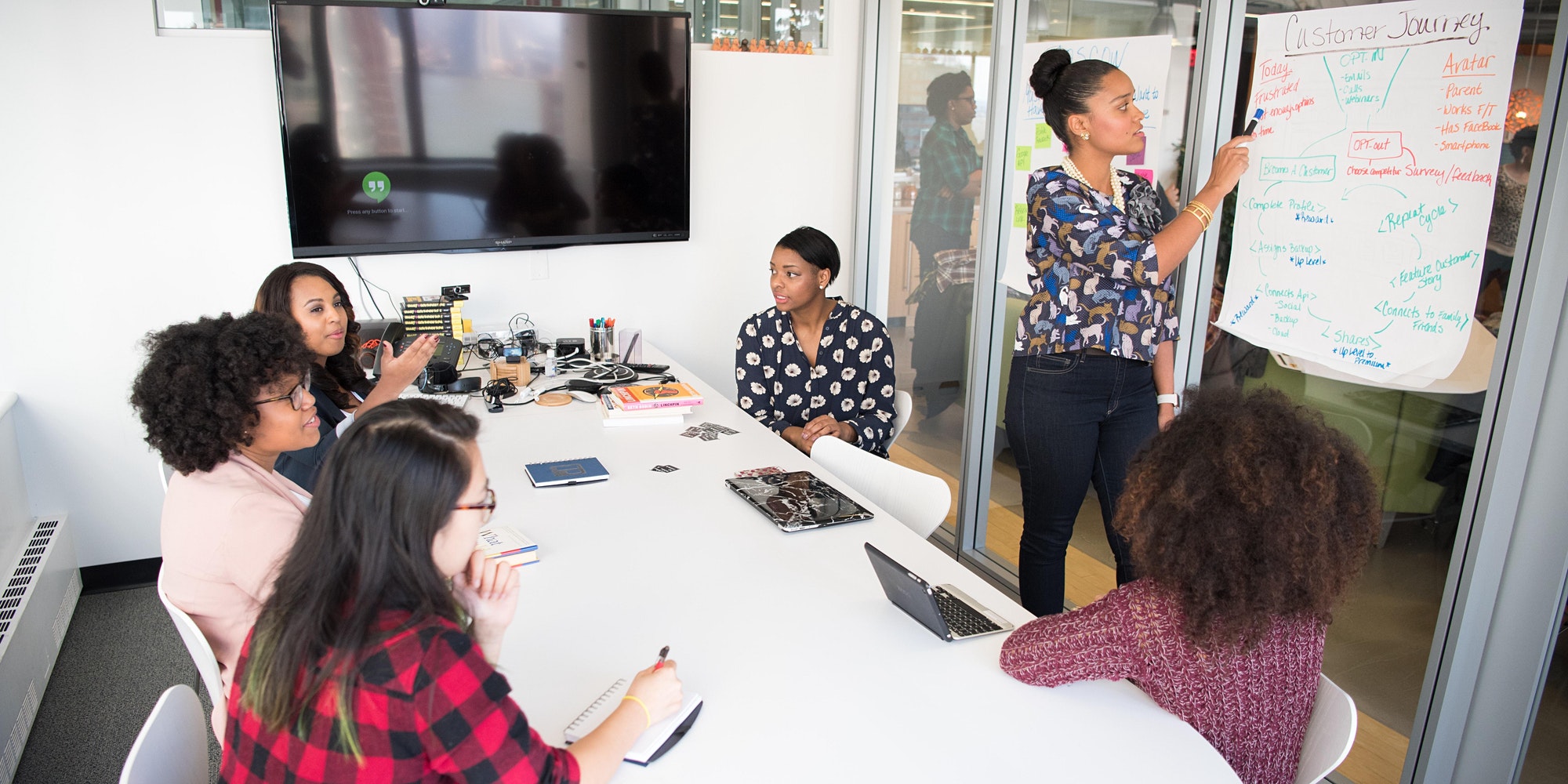Deepening our Understanding – Introduction
We believe it will be possible to increase women’s representation in In Demand STEM and that there is no ceiling to what we can achieve; but we also recognise that existing policies and interventions have had limited success.
We therefore need to develop a deeper understanding of the ‘women in STEM ecosystem’ and the systemic nature of the challenge we face in getting more girls and women to join and remain in the In Demand STEM workforce.
We will use the women in STEM ecosystem map to identify gaps in our knowledge, to inform our wider research and to make recommendations for further action.
The key tasks are:
Develop a detailed map of the women in STEM ecosystem that identifies the key elements, connections and dynamics between its constituent parts.
Identify the full range of services that currently exist to increase the In Demand STEM workforce and map where they sit in the ecosystem
Conduct detailed desk research into the known challenges faced by other economies seeking to increase the number of women in STEM.
Develop our knowledge of the influences on girls from 0-5 and through the transition into primary school.
Build a learning network with policy makers internationally.
Prepare a policy insights paper that sets out key lessons and recommendations for further action.
Use the policy insights paper to inform development of the Highly Skilled Workforce work programme required to deliver DfE’s Vision for a 10x Economy and the Skills Strategy, Skills for a 10x Economy.
Agree and secure funding for delivery of the policy paper recommendations.
Developing a detailed map of the women in STEM ecosystem
We are developing a detailed map of the women in STEM ecosystem that identifies the key elements, connections and dynamics between its constituent parts and that informs current and future policy interventions.
We will map the whole ecosystem. This means we will not only reflect our growing knowledge of the pipeline through primary and secondary education but also the role of apprenticeships, tertiary education, women returners and career changers in increasing participation.
What we are doing

We are working with others to address the continuing challenge to create a standardised and systematic approach to data capture, reporting and monitoring that will help us to build a more accurate picture of the progress of girls and women through the STEM ecosystem. Once this is in place, we will seek to expand our knowledge of key points in the pipeline and throughout career pathways and establish mechanisms for data analysis that support future policy making.
Identifying the full range of services that currently exist
We are going to identify the full range of services that currently exist to increase the In Demand STEM workforce and map where they sit in the ecosystem. This will mean:
- Identifying gaps in provision and options for plugging those gaps;
- Identifying oversupply and options for managing it;
- Characterising the channels of communication between policy makers, intermediary organisations and delivery bodies and determine their effectiveness; and
- Developing our understanding of the bottlenecks in the ecosystem that may be holding NI back from achieving our goal.
What we are doing

We are developing an online directory which will allow users to search for STEM resources in their area by topic and level. We hope that this will go live this summer.
Conducting detailed desk research into known challenges
We are learning from the experience of other economies about what works – and what does not by conducting detailed desk research into the known challenges of increasing women in STEM and draw on it as we build our understanding of how the ecosystem operates.
Research undertaken
Lessons from Experience
This report presents our review of the known challenges faced by other economies seeking to increase the number of women in STEM.
Developing our knowledge of the influences on girls from 0-5 and into primary school
In the initial stage of this workstream, we have focussed in particular on developing our knowledge of the influences on girls in the early years. We have conducted a detailed literature review to:
- Understand girls’ experience from 0-5 years;
- Assess the scope for intervention in the 0-5 years age range; and
- Identify good practice in reinforcing and sustaining positive experiences through the transition into primary education
Research undertaken
Influencing STEM choices
This report is our review of current and recent research into the influences on girls from 0-5 and through the transition into primary school that shapes their attitudes to and interest in STEM subjects.
Building a learning network with policy makers internationally
Building on our desk research, we will build a learning network with policy makers internationally to share experiences and build case studies of successful – and unsuccessful – policy interventions.
What we are doing

We are collaborating with other policy makers through a range of networks across the UK and internationally to ensure that we are learning from the experience of other economies about what works – and what does not – as we develop our approach.
Prepare a policy insights paper
We will prepare a policy insights paper that sets out the key lessons emerging from this strand of work and our recommendations for further action and strategic programmes to tackle underrepresentation and to increase the number of women in the In Demand STEM workforce. We will use the insights paper to inform development of the talent and skills work programme required to deliver DfE’s Vision for a 10x Economy.
Research undertaken
Supporting Girls’ and Women’s STEM Choices
This policy insights paper sets out the findings from these two pieces of research and identifies the key lessons and policy recommendations to tackle under-representation and to increase the number of women in the In Demand STEM workforce.
Use the policy insights paper to inform further development
We will use the policy insights paper to inform development of the Highly Skilled Workforce work programme required to deliver DfE’s Vision for a 10x Economy and the Skills Strategy, Skills for a 10x Economy.
Agree and secure funding
Once we have completed all the other tasks we will be in a position to agree and secure funding for delivery of the agreed recommendations.
Explore more
Sign up for regular updates!
If you want to keep up to date with all the actions we are taking forward, sign up for our monthly email. You’ll get the latest news on what we are doing to promote STEM careers to girls and women, plus events, funding opportunities and much more!



